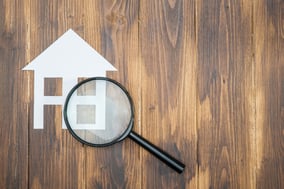Benefits of Owning a Home
Home ownership is one of the key components of the “American Dream” and something that most of us would like to achieve in our lives. It’s not uncommon for many of us catch ourselves imagining the perfect home and what it would be like to live there. Whether it be that beautiful suburban home with the white picket fence, the bungalow located right on the beach, the mountain retreat in the woods, or a luxurious mansion; we’ve all been guilty of these fantasies at some point in our lives. Although some of us may never be able to attain that fantasy “dream home”, for many, there is still a strong desire to own a home. Aside from the obvious benefit of having a roof over your head, owning a home has many benefits.
Pride of ownership
The first benefit of owning a home is just that, you own your home and it is yours to do what you would like. Contrary to renting, you are no longer restricted to certain paint colors, appliances, permanent fixtures and other community restrictions. You have the opportunity to make it your space, catered to your likes and needs. From knocking down walls to adding additions, owning a home is an opportunity to invest in your family’s future. By owning a home you also become a member of a neighborhood or community. Typically, certain areas will have different “vibes” to them, so be sure that the home you are considering is in an area that you enjoy and see yourself comfortably becoming a part of.
Building Wealth Over Time With Appreciation
As far as the economic benefits of owning a home, appreciation and building equity are key. We have all been taught that owning a home is a good financial move. After all, it’s how many of our parents and grandparents built wealth over time. However, in the past decade, we have seen a period of turbulence in real estate, leaving many with lost confidence. This doesn’t mean that owning a home is no longer a good financial decision, it simply means that you need to own the right home. So, what is the right home? It is a home that fits your personal needs and finances. The reason that so many were caught up in the financial crisis of 2008, was that they were living outside of their means. Just because you have been approved up to a certain amount for a loan does not mean that you need to spend that much. Weigh the pros and cons of the home you are considering to see if there is personal value there. Ask yourself, do you really need the 3,500 sq. ft. home for $600,000 when the 1,500 sq. ft. home for $350,000 would fit your needs just as well?
Over time, most communities will see their home values appreciate. Appreciation is the increase in value of an asset over time, meaning how much your home is worth today compared to when you purchased it. Obviously there are no guarantees as to what will happen in the future, but historically home prices have risen over time. As long as you are purchasing in healthy neighborhoods and areas of growth, there is a very good chance that your home will increase in its value. Combine the benefits of appreciation along with building equity in your home, and you have a very powerful financial combination.
Equity is the portion of the asset that you own. Most homeowners use some form of financing when purchasing a home, meaning that although you are living in the home and “own” it, you are still paying towards the portion that you borrowed. As you make your monthly mortgage payments, a portion of each payment is going towards the principal (amount that you initially borrowed) and a portion is going towards interest (cost of borrowing). With each of these payments, you are effectively taking a bigger piece of the ownership and once you have completed all the payments you will own the home “Free and Clear”. If you compare this with paying rent monthly, where in the end you still do not own anything, homeownership definitely has its benefits. The equity that you have built up in your home can also be used to borrow against if you are so inclined.
Tax Benefits of Home Ownership
Owning a home and investing in real estate can have great tax advantages. Many of the costs associated with home ownership are tax deductible, meaning they reduce your tax liability which saves you money. So, you may ask, what are the costs that you can deduct?
- Mortgage Interest
If you used financing to purchase your home, you can deduct the interest portion of your payments up to a total of $1,000,000. It also includes interest on home equity loans and lines of credit up to $100,000. This is very important, as interest is typically the largest portion of your mortgage payment in the first years of ownership.
- Points
A point, or points, is a term used to refer to 1 percentage point of the purchase price that is due up front when closing on a home. For example, if you are receiving a 30 year loan for $150,000 at 5% interest plus a point, that means that at the time of close, you will pay the lender $1,500 ($150,000 x 1% = $1,500). This is another expense that can be deducted from your taxes.
- Property Taxes
Any state or local taxes that are paid on real estate are fully deductible for income tax purposes.
- Capital Gains
Capital gains is the tax on the increase in value of your asset (appreciation). This only comes into play when you sell your home. However, if the home that you purchased is to be used as your primary residence for at least 2 years, you will qualify for capital gains exclusion. What does this mean? As long as you have lived in your home for 2 of the 5 years before the sale of the property, up to $250,000 ($500,000 for couples who file a joint return) of the profit you’ve earned on the increased value of your home is not taxed. This can be a huge benefit, especially if you have seen your home appreciate dramatically.
- 1031 Exchange (For Investment Properties Only)
If you noticed in the paragraph above, in order to be eligible for the capital gains exclusion, you needed to live in the property for 2 of the last 5 years. So what if this is an investment property that you never lived in or ever intend to live in? This is where the 1031 Exchange comes in. A 1031 Exchange can only be used on investment properties and it allows you to avoid capital gains tax as long as you take the proceeds of selling the investment property to buy another investment property of equal or greater value. This is a huge benefit to real estate investing and a trick that many wealthy investors take advantage of. Our CPA always says “Swap, swap, swap, until you drop”. Using a 1031 Exchange means that you can continue to build your investment portfolio without ever having to pay capital gains tax as long as you don’t “cash out”. Below is a quick example:
Year 1
Purchase a $200,000 single family home using conventional financing with 20% down ($40,000). Rent received is enough to cover all expenses and you make $200 per month profit. You use this additional $200 to apply towards the principal with each mortgage payment.
Year 10
Let’s say that you have paid off your original mortgage in full from the rent received the past 10 years and you now own the home free and clear but are looking for a larger investment. You decide to sell the home and do a 1031 Exchange. You sell the home for $200,000 and you use the proceeds as a down payment on a 4-unit property valued at $1,000,000. Again, the rent that you make from the property covers all expenses and you make $500 per month profit. Because you have effectively “rolled” your investment over into a larger investment property, you do not pay any capital gains tax. The key thing to notice here is that you now own a property worth $1,000,000 and your initial investment was only $40,000!
Year 20
Let’s say again that from the rents received, you now own your 4-unit property free and clear. You decide to do another 1031 Exchange and this time use the $1,000,000 in proceeds as the down payment on a 16 unit apartment building valued at $5,000,000. Again, you pay no capital gains taxes! The amazing thing about this is that your initial investment is still $40,000 but you now own a property valued at $5,000,000. This is the “swap, swap, swap, until you drop” strategy because as long as you keep reinvesting, you are never taxed. If you were to sell any of these investment properties and simply keep the money, you would be responsible for the capital gains tax.
You can continue this pattern for as long as you want, and as you can see, it can be very advantageous in the long run.
Now that you understand some of the many benefits of owning a home, it’s time to ask yourself if owning a home is right for you. There are many factors to be considered when it comes to the decision of purchasing a home, and although there are all these benefits, many of them will only be beneficial if you are living in the home long term, think 2-5 years or more. You still may be able to benefit in owning a home for a shorter period, but typically you will lose some of your gains in the transaction costs. However, if you are planning on staying in a city for at least two to five years, owning a home can provide you with great long-term financial rewards.
The above real estate information on Benefits of Owning a Home was provided by John and Melissa Steele. John and Melissa can be reached at team@steelesandiegohomes.com or by phone at 619-887-4429.
Steele San Diego Homes services all of San Diego county and also works with out of area clients to connect them with a strong local agent. Whether you’re interested in buying, selling, investing, or just want to learn more, John and Melissa Steele are here to help you.






